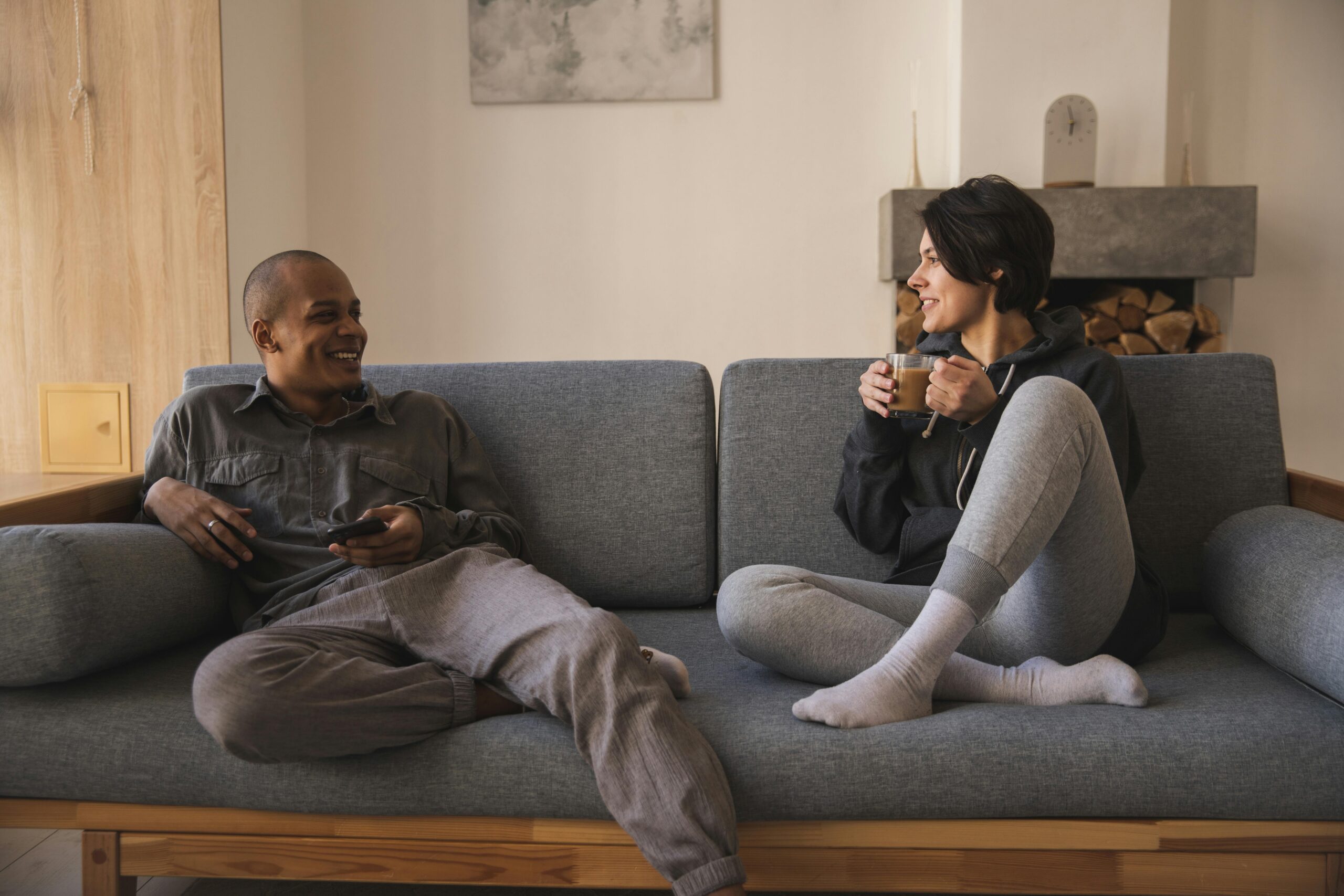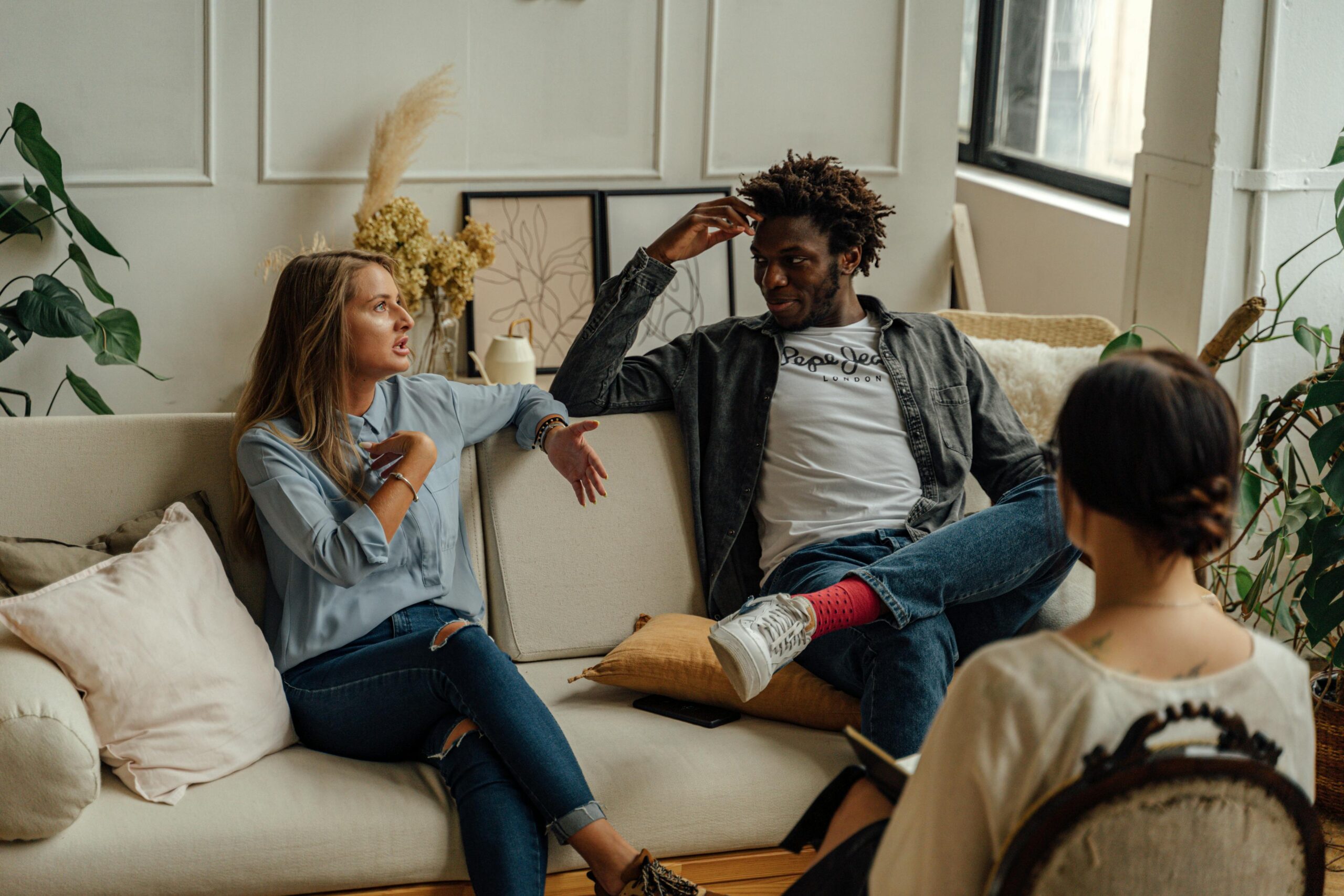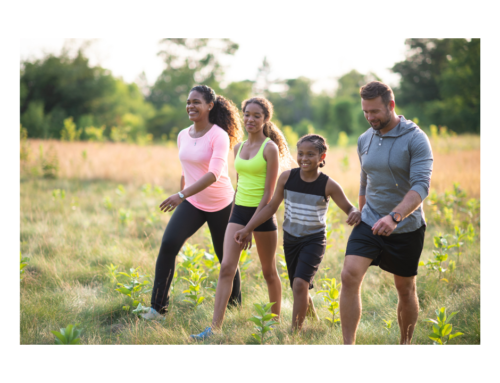We’ve all been in a fight where neither person was listening to the other. You’re upset and they’re upset and before you know it the conversation involves two people talking AT each other, bringing up past issues that have nothing to do with the problem at hand. You leave the conversation unresolved and you walk away thinking: what were we even fighting about to begin with?
Sound familiar?
Often, these types of fights or communication problems boil down to one simple thing: listening. Or rather, not listening. So how can we slow down and ACTUALLY listen to others? Especially, our romantic partners?
The answer is reflective listening.
What is Reflective Listening?
Reflective listening focuses on one speaker at a time. The person listening has one job: pay attention to what the speaker is saying. When the speaker is done talking, the listener then repeats back what the speaker shared. It’s different than active listening because the listener isn’t looking to engage in a conversation; their goal is to pay attention to EXACTLY what the other person is sharing,
The reflective listener DOES NOT…
–Use mean or dismissive language when they repeat what the other person shared
-Get defensive or respond while the other person is talking
-Give an opinion on what the other person is saying or feeling
-Use hostile body language when listening or reflecting back what the other person said
Pretty simple, right? It can be when done correctly!
Why is Reflective Listening Important?

Reflective listening is important because it makes sure BOTH sides not only get to talk and be heard, but it ensures that both people are understood by the other. How? Well, when the reflective listener repeats what they heard back, the person who was speaking has the opportunity to clarify what they meant. Additionally, because reflective listening requires both people to be speakers and listeners, both parties are able to get on the same page and know exactly what the other person is thinking, feeling, and means.
When done correctly…
-The conversation has a balance of talking and listening
-Each party pays attention to the specifics that the other is sharing so that they can repeat it back
-Body language is mirrored so the speaker knows how they are coming across
-No one gets defensive because the goal is to hear, reflect, and understand what the other person is saying
-Each person walks away feeling heard
How to Reflectively Listen

It’s a simple five step process.
1. Listen
Pick one person to talk first. The listener says nothing while the other person talks.
2. Process
The listener thinks about what the speaker shared.
3. Repeat
The listener echoes what the speaker said. They repeat back what they heard the speaker say they were feeling and thinking.
4. Confirm
If the speaker feels like something that the listener repeated was wrong or that they said something they didn’t mean, they have the opportunity to clarify. After the speaker has clarified, the listener repeats what they meant to say so the speaker knows that the listener now understands.
5. Switch
Both sides need to be heard!
What is an example of reflective listening?
A: I’m feeling really upset that you came home so late last night without calling or texting. I was worried and it felt really inconsiderate that you wouldn’t at least think to let me know.
B: What I am hearing is that you felt unconsidered, worried, and upset when I came home last night without letting you know.
Looking for other examples? Check out this article for some non-romantic reflective listening examples.
Reflective Listening Phrases
You’ll know you’re engaged in reflective listening when you start a sentence with one of these phrases…
-What I am hearing is…
-So you feel…
-For you, it feels like…
-You wish that…
Still feeling unsure if you are being a successful reflective listener? Check out this article that provides a list of questions to ask yourself to improve your listening skills.

Reflective listening is a great way to bypass those fights and conversations where neither you nor your partner feels heard. This type of listening also prevents the conversation from jumping to another topic. Lastly, (and most importantly), reflective listening actually allows for solutions because both people know exactly how they are coming across and how the other person feels.
So stop, listen, and reflect your way to a better day (or to a better relationship)!





